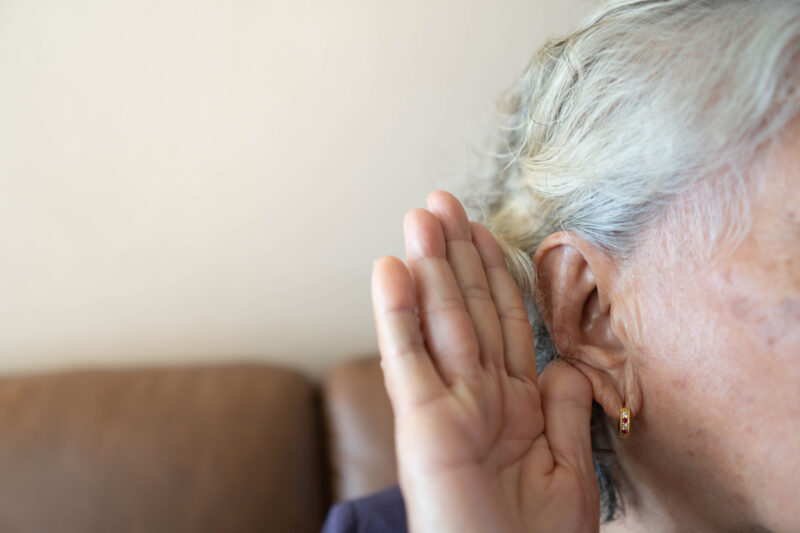What does the diagnosis "presbycusis" mean for those affected?
Strictly speaking, the term presbycusis refers to hearing loss in older people. This is typically a bilateral, symmetrical, progressive inner ear hearing loss in the higher frequency range.

Hearing automatically declines with age, starting from around the age of 50. How quickly or severely this so-called age-related hearing loss develops varies greatly from person to person.
The following factors can lead to a significant deviation from the normal physiological ageing process, i.e. accelerate and sometimes even cause progressive hearing loss:
- Genetic predisposition
- Diabetes
- Circulatory disorders
- Longer noise exposure
- Infections
- Metabolic problems
- High blood pressure
- Nerve damage
- Accident
- Ototoxic medication
- Nutrition
- Alcohol
- Smoking
Untreated hearing loss significantly impacts the quality of life of those affected. The lack of communication can lead to loneliness and depression. Likewise, the age-related hearing loss is directly related to the development of dementia, as well as an increased risk of disease in general, due to deteriorated doctor-patient communication.
Early detection and treatment of hearing loss is therefore extremely important for those affected. In addition to medical rehabilitation options, the provision of hearing aids or hearing implants is the top priority.
A visit to an ENT specialist is required for a diagnosis and precise assessment of the severity of the hearing loss. Following an examination of the external auditory canal and the eardrum, a hearing test is carried out in a soundproof booth after excluding other or existing diseases. The result is then documented in an audiogram. As soon as a critical level of hearing loss is reached, the attending physician will probably diagnose presbycusis in the elderly patient.
You can find out all about the options available in the event of a presbycusis diagnosis here: https://www.hoerverlust.at/pension/therapie/

You are currently reading:













